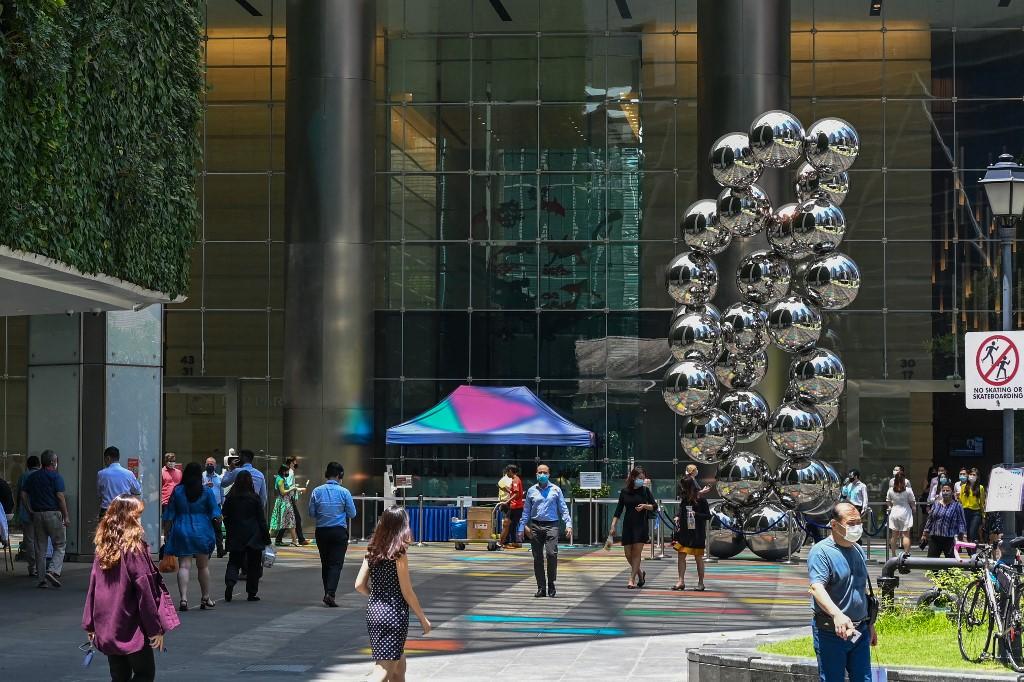Fed-up expats begin drifting away from Singapore
Resentment over jabs, jobs and travel restrictions weigh down the city-state’s foreign professionals.
Just In
Tom Meredith had just arrived in London after more than a year away when Singapore revoked his re-entry pass, which he needed to fly back to his wife and six-year-old twin daughters at home in Singapore.
What should have been a short business trip to the UK in May suddenly had no return date, forcing Meredith to shuffle between family and friends’ homes for weeks.
Meredith was just one of the many expats locked out of Singapore when the city-state imposed strict travel curbs as new clusters involving aggressive Covid-19 variants emerged, the Financial Times reports.
Authorities said they reimposed restrictions in May to avoid large outbreaks.
The ministry of trade and industry said it recognised “the impact of border measures on all, in particular those who need to travel for business or to reunite with family”, adding it would work with those affected to find solutions.
For some foreign professionals the restriction proved to be a breaking point.
Frustration over travel constraints, vaccines, and fears over jobs have prompted expats to abandon the island for their home countries or other financial hubs, such as Dubai.
Expats younger than 40 were at the very end of the vaccination queue, with Singaporeans aged 12 to 39 given priority. Bookings were finally opened to non-Singaporeans last week.
“It’s just one of many ways in which Singapore showed it’s not super friendly to expats, and that they will always prioritise their own citizens ahead of foreigners,” said a financial consultant who wished to remain anonymous.
A struggle to find work has also stoked expat anxiety. “If you’re made redundant and you’re a senior director, it’s very difficult to find something for an EP [Employment Pass holder, who earns at least S$4,500 (US$3,340) per month],” said Richard Aldridge at Black Swan Group, a financial services recruiter.
Josephine Teo, the then manpower minister, in March called on companies to “strengthen their Singaporean core”. Last year, Singapore raised the qualifying salary for employment passes twice.
While EP holders accounted for a quarter of Black Swan’s placements in Singapore in 2019, the number in 2021 has dropped to zero. “EP is almost toxic. People with EPs are not being looked at,” said Aldridge.
Official statistics about expats not renewing their visas are hard to obtain but Adam Sloan, a managing director at moving company Santa Fe Relocation, said people leaving Singapore far outnumber those arriving.
“We are completely full operationally. We are trying our best to find additional slots and spaces to pack up,” Sloan said. The daily number of families Santa Fe moved out jumped from 20 last year to between 30 and 35 by June, he said.
Some expats, however, are still moving to the city-state including from Hong Kong, which has been rattled by protests, school closures and China’s imposition of a tough national security law.
One Hong Kong executive making the move said, “From a career perspective Singapore is far more attractive than Hong Kong. And obviously it’s safe, convenient, more affordable and is a more international city.”
Another attraction is Singapore’s efforts to craft a coronavirus exit strategy.
Once it fully vaccinates at least half of its 5.7 million population, Singapore may allow social gatherings to expand to eight people and inoculated residents to attend live performances and sporting contests with larger audiences.
With more than 3.7 million people having received a first dose and 2.2 million a second shot, it also plans to take “progressive steps” to ease travel restrictions.
Meredith finally returned to Singapore last week. But his family has considered whether they should “carry on” in the city-state. In the past few months, five friends and their families have left.
For now, though, he is just “very, very glad to be home”.
Subscribe to our newsletter
To be updated with all the latest news and analyses daily.
Related Articles
Most Read
No articles found.
